The United States Navy has taken land at Katama for use in its new gunnery range without lease, purchase, condemnation or any prior consultation with the owner. Edward T. Vincent is the Vineyarder who has been having the unusual experience of losing his property through outright seizure, and of receiving short answers to his questions.
Some time ago surveyors put out stakes on some of his property. Then they pulled the stakes up. Still later the Army occupied part of the tract now being taken by the Navy, which runs from the old airport through to the South Beach. After the Army left, contractors evidently representing the Navy moved in.
The Naval Auxiliary Air Facility here will eventually take over the range, but at this stage has no control or responsibility, construction being in the hands of civilian contractors directed by some agency of the Navy on the mainland.
Received Short Answers
Nobody has ever said a word to Mr. Vincent, but when he went down to take a look he discovered a bulldozer knocking down fence for the distance of a quarter of a mile. He spoke about this to the men in charge who said that if he wanted to keep any of the posts he had better hurry up and get them out of the way. The same man said that if Mr. Vincent wanted to watch the fence which is to be put up, he could tell how much of his land the Navy was going to take.
Speaking of his own fence, Mr. Vincent says, “It wasn't the best fence in the world, but it kept the cows in. It would cost $500 to put up another.”
All the land in question, about seventy-five acres, has been used by Mr. Vincent for some years, a large acreage having been under regular cultivation. He has also relied upon it for hay and does not now see where else he is going to get hay.
“Maybe there'll have to be an auction next year,” he says.
Recently he learned that Robert Vincent of Chilmark, owner of a share of the property placed at about one-thirty-second, had received a letter some time ago asking whether he would agree to a lease. No other communication from the government in regard to the land has been discovered.
Went Down for “Last Look”
“I went down to look around a few days ago,” Edward T. Vincent says. “I figured it would be the last look I'd have at my land. We saved a few posts and a little barbed wire and let the rest go. I decided to try to forget about it. I'm too old to start building up new land. I have another piece near the airfield, but they might decide to spread out up there next. If the government ever gets around to paying for anything for what has been taken, I guess it won't be in my lifetime.”
Just before the Army pulled up stakes and departed around Christmas, Mr. Vincent viewed the ravages which had been inflicted on his property up to that line.
“We'll be back Tuesday and straight-on up,” an officer told him, but nobody ever came back Tuesday or any other day.
Damage caused by the Army was particularly serious to the property of the Mattakeesett Creek company. The company has recently received a form of waiver with the request that it be signed, certifying that the property was left in a condition as good as that in which the Army found it. Instead of signing the waiver, the creek company has replied that an expenditure of $1,000 will be necessary to put the property back in shape. The creek, which must be kept in shape for the herring fishery, is particularly subject to damage.
Offered Fifth of Price
The Katama Bay Trust, of which Arthur B. Hillman is trustee, was appointed by the Navy for a lease of land at Katama for the duration. Mr. Hillman offered to lease at a rate of $250 a year, the taxes on the land alone coming to $159 a year. The Navy wrote back and offered $50, which Mr. Hillman refused, adding that as a trustee he had no choice. He then received a letter stating that the land would be taken.
The treatment of land owners is arousing considerable comment in view of the vast sums spent on the Vineyard apparently with little effort to obtain full value for the government.
The taking of the Vincent land also affects the access of the public to the South Beach, which is likely to be cut off entirely for the duration of the war.

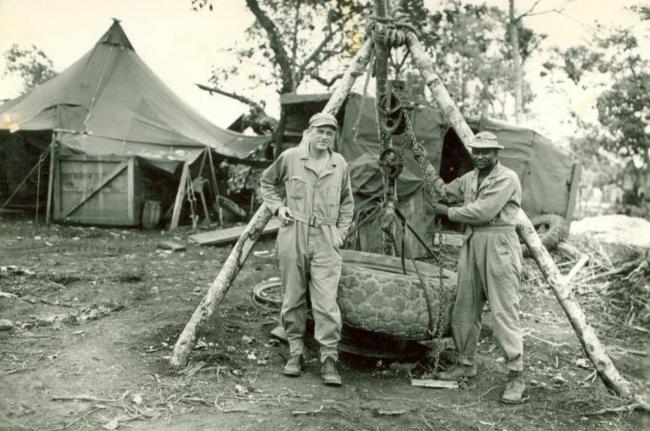



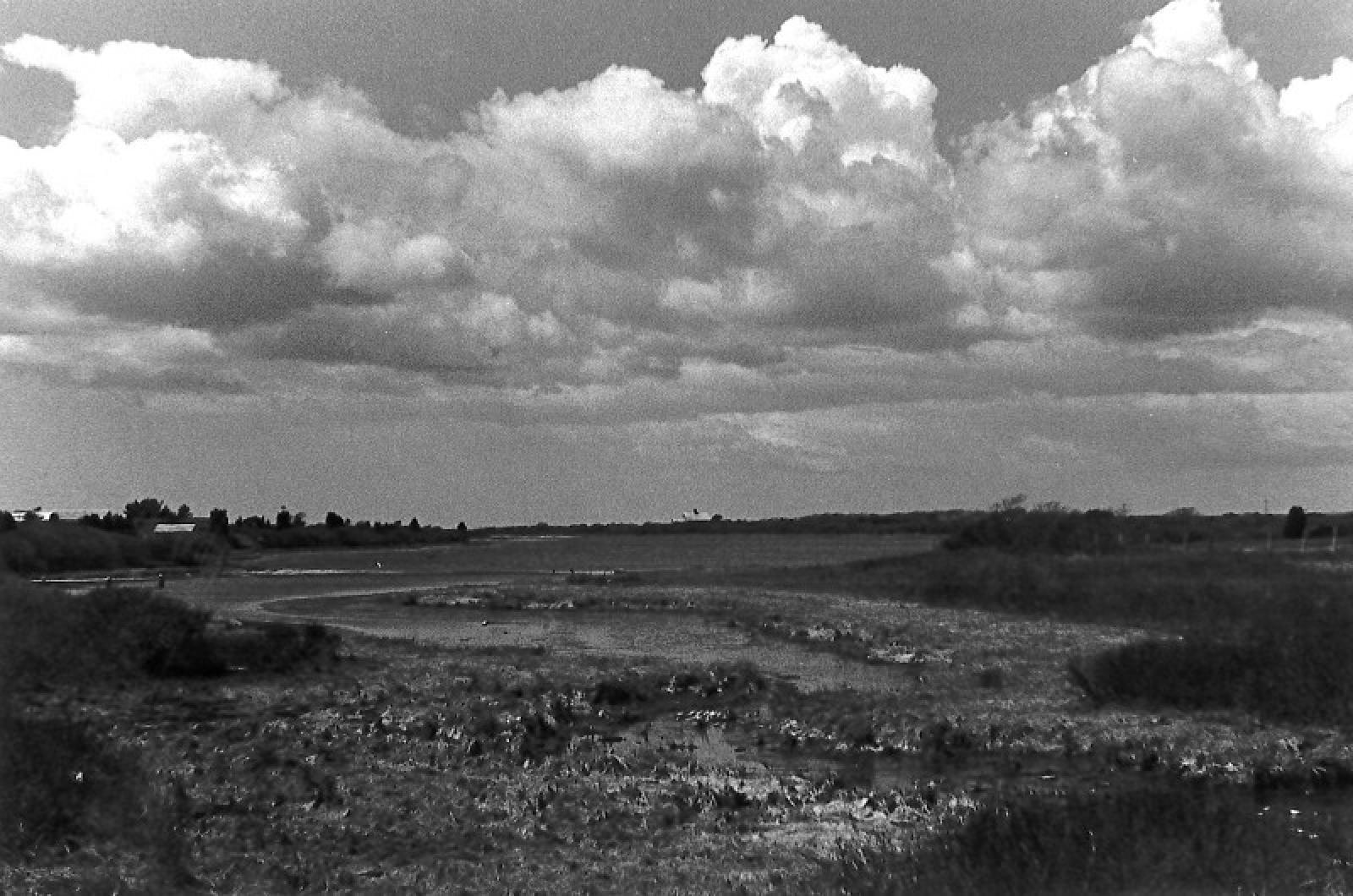
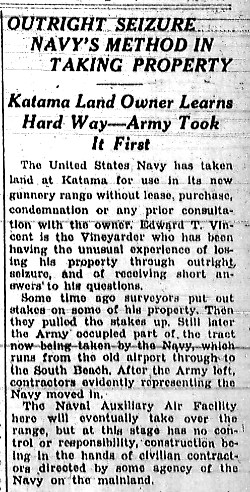
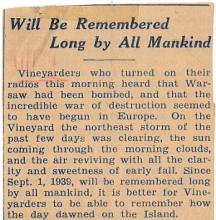
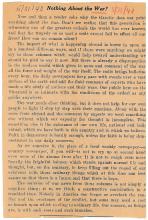

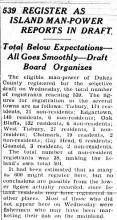

Comments